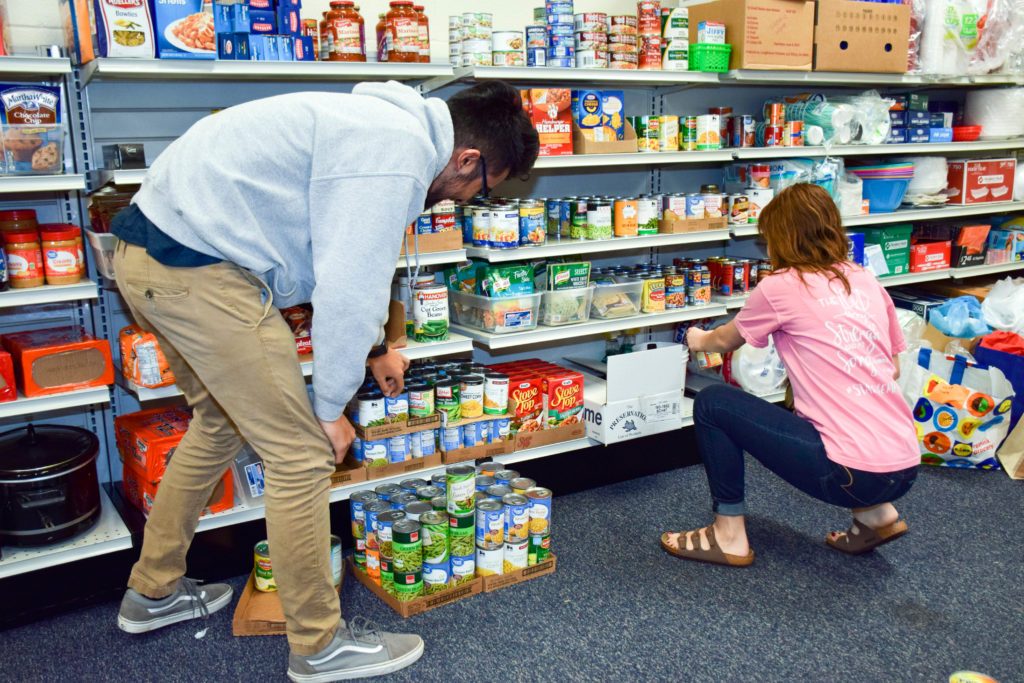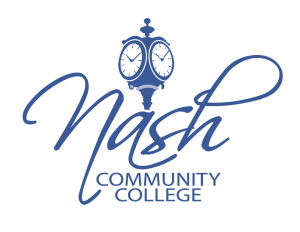NCC Shares Experiences in Supporting Needs of Students

Nash Community College was invited to the 2019 Atlantic Coast Conference (ACC) Leadership Symposium to share its experiences in promoting holistic services for students, and especially the campus culture of Blue Love addressing student barriers to education. The event was hosted at North Carolina State University February 22-24, 2019.
The symposium, titled “Nourishing our Communities: Uniting Against Hunger”, was designed to develop a community of ACC undergraduate students who understand the relationship between global and local issues. Student leaders had the opportunity to learn through intensive engagement in educational sessions, keynote addresses, topical content exploration, simulations and experiential application.
NCC Dean of Student Wellness Marbeth Holmes participated as a panelist citing her first experience with food insecurity as occurring in the 1980s when she was a non-traditional college student with an infant and little money for food after paying childcare, transportation, and household expenses. “When I began my teaching career I was quite mindful of the financial stress many students encounter and began keeping food and snacks in my office,” she said. “Over time, it was clear that many faculty and staff were doing that and eventually the NCC Student Government Association opened the Food Pantry,” she said.
A North Carolina native, Holmes earned her Master of Social Work at UNC and a Master of Arts in English at Abilene Christian University. She is a Licensed Clinical Social Worker, a Licensed Clinical Addictions Specialist, and a Certified Clinical Trauma Professional.
“Nash Community College has seen a direct correlation with our student success outcomes when basic needs are met,” Holmes said. “Many needs exist in our own population, and these serve as barriers to education and academic success when they are not addressed. I hope that in some small way I inspired students to engage in holistic services addressing food insecurities and many other needs at their universities throughout the Atlantic Coast Conference.”
Holmes shared that food insecurity is often experienced with, or creates, other insecurities for students stating research shows a direct correlation between basic needs insecurities and increased anxiety, depression, and even suicide.
Other panelists included Dr. Lindsey Haynes-Maslow, Assistant Professor and Extension Specialist in the Department of Agricultural and Human Sciences at NC State University; Jamal Moss, Health Equity and Policy Specialist for Talk Health with Frankie, a non-profit organization; Dr. Mary Haskett, Professor of Psychology at North Carolina State University and Erin White, founder of Raleigh-based Community Food Lab and co-founder of the Capital Area Food Network.
“The greatest professional experience of my career in Higher Ed has been the explosion of our Nash Community College Blue Love campus culture. We have a full service Student Wellness Center serving the whole student providing trauma-informed services that include direct- practice clinical therapy, a Collegiate Recovery Program, a Victim’s Advocate for those experiencing sexual assault, domestic violence, bullying, stalking; a Single Stop program that screens for Medicaid, SNAP, WIC, childcare benefits, provides financial counseling, access to legal services, free tax preparation, and community resources; a MALE leadership development program to facilitate opportunities for our minority males in particular,” she said. NCC’s Blue Love Fund provides emergency assistance to students to meet a variety of basic and catastrophic needs from food and transportation to avoiding eviction and utility disconnection to house fires and natural disasters. “Blue Love is a force of energy that has propelled high student retention, record graduation rates, and continued enrollment growth, but most of all has empowered Nash Community College students with the resources they need to be successful.”
In the photo: NCC students stock the on-campus food pantry – a resource to help address food insecurities among college students.








